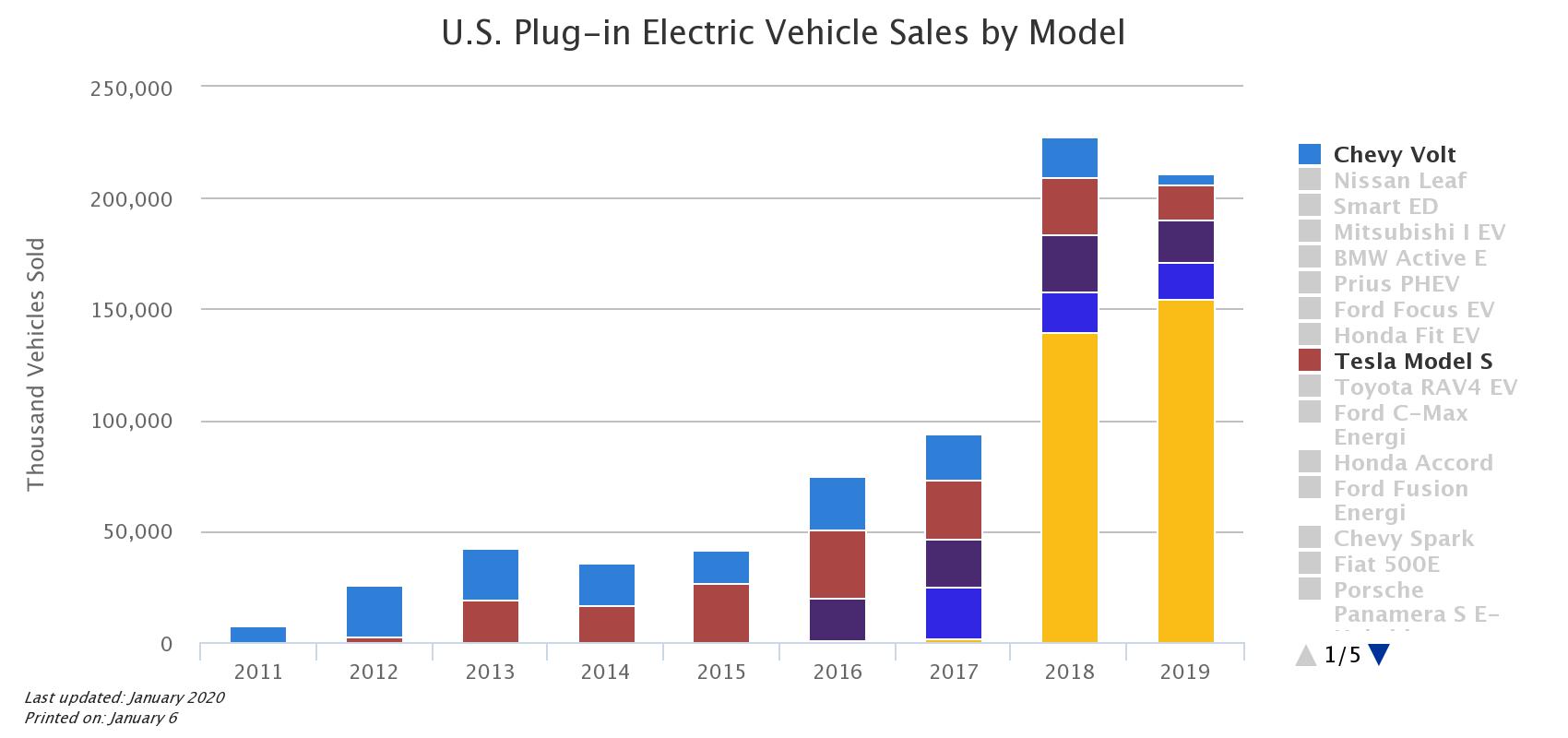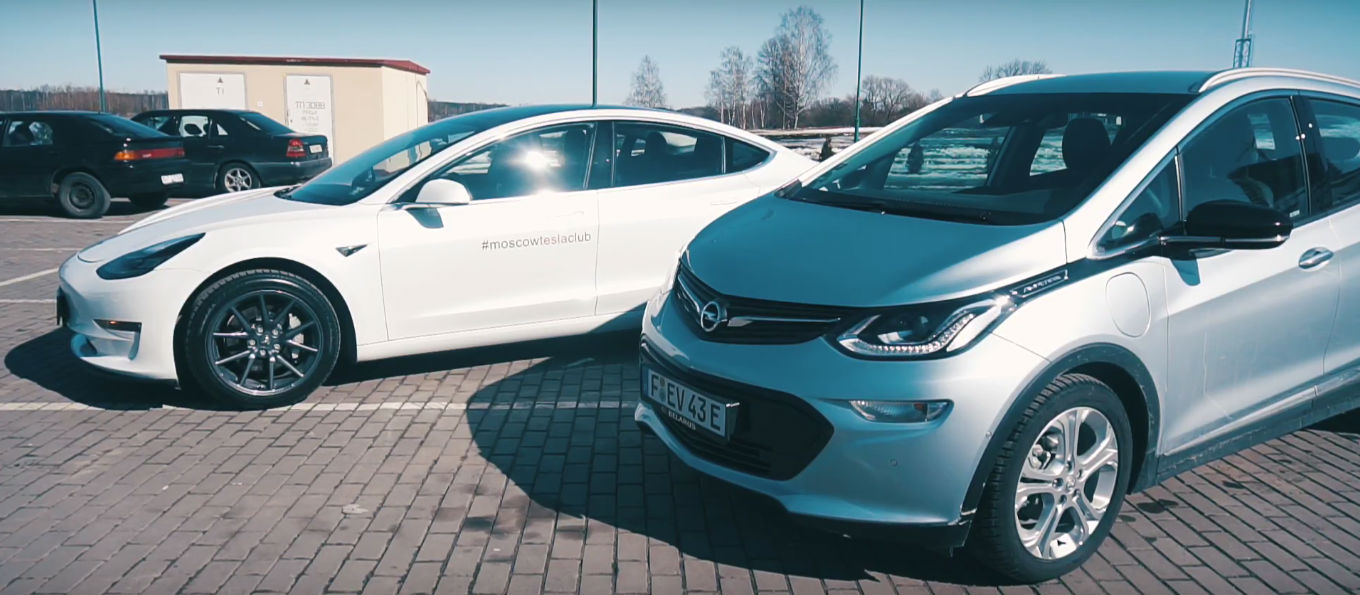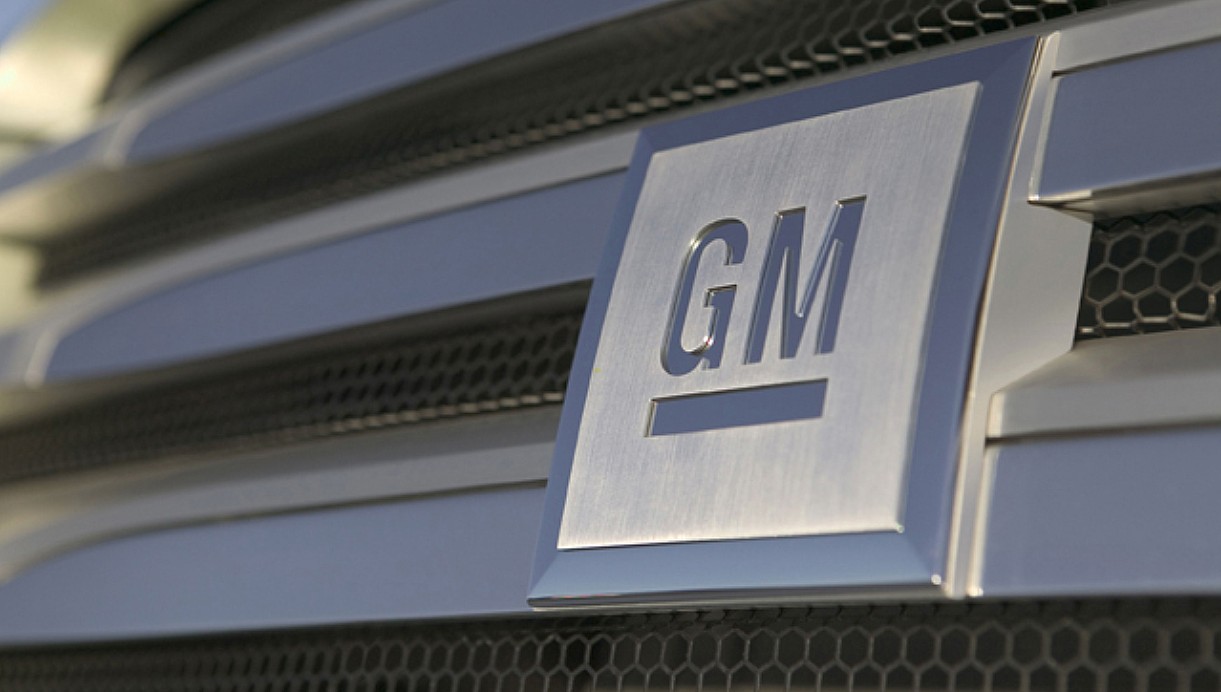General Motors says it has a plan to dethrone Tesla: the undisputed king of electric vehicles.
GM CEO Mary Barra said in November that the company responsible for the Chevy Volt would build a million EVs in 2025. The question is, how will it get there, and what steps will it take to dethrone Tesla, who produced more than 509,000 EVs in 2020 and delivered 98% of them.
“We are committed to fighting for EV market share until we are number one in North America,” Barra said after detailing the plans for 30 EV models by 2025. The project requires a $27 billion investment from one of the U.S’s most notorious automakers. But in the past, car companies have outlined their plans to beat Tesla, and they’ve continuously fallen short, not accounting for Tesla’s planned growth.
In 2012, GM was the undisputed leader in EVs. The Chevy Volt sold 23,461 units that year. Then Tesla came along with the Model S. Five years later, Tesla had figured out that it could build a mass-market vehicle with the Model 3, proving that it’s not about the number of models. Still, the focus should be on affordability and efficiency. Tesla showed that it had figured out the formula for a fun, fast, efficient, and affordable electric car. It was a riddle that legacy automakers that had the cash and infrastructure to develop hadn’t solved.
Credit: U.S. Department of Energy, Alternative Fuel Vehicle Data Key: Blue: Chevy Volt, Burgundy: Tesla Model S, Purple: Tesla Model X, Royal Blue: Chevy Bolt, Yellow: Tesla Model 3
Despite the Model 3 giving Tesla and its frontman Elon Musk significant production issues, the vehicle has become the most popular EV in the U.S., China, and other territories. Led by the Model 3, Tesla held 58 percent of the U.S. EV market share in 2019, and Financial Post states that the automaker could own as much as 80 percent of the market share for 2020.
GM’s plan is simple: depend on its Ultium battery, which will amplify production and the development new, all-electric models. It plans to decrease the cost of battery production to the $100/kWh threshold, which will activate price parity with gas cars, in three years. It then plans to get that down to $75/kWh in 2025. These projections come from Emmanuel Rosner, an analyst with Deutsche Bank.
The problem is: Tesla detailed its complete roadmap to decrease the cost of its price per kWh during the company’s Battery Day event in September 2020, and it shows prices as low as $50/kWh.
This brings in significant possibilities for GM moving forward, especially if it can continue to leverage more affordable battery costs past 2025. However, it will need more help beating Tesla, which at this time, analysts see as the leader for the foreseeable future.
A Tesla Model 3 recently battled a Chevy Bolt on a drag race in Moscow. [Credit: KindelTech/YouTube]
“Price is going to be what determines who is the market leader, and Tesla looks set to win on price for the foreseeable future,” Luke Gear, an analyst at IDTechEX, says.
Past the financials, Tesla’s growth, which is fueled by a strict and non-diversified focus on EVs only, gives the company an explicit advantage moving forward. On the other hand, GM has to combat the development of its 30 planned EVs with its existing fleet of gas-powered vehicles. Tesla can continue developing its EVs without any other distractions. Its name and reputation as the leader in the sector will help attract young and fresh engineering talent, especially in software and manufacturing, which are some of the company’s main focuses.
ALSO READ:
GM watches Tesla go from “graveyard-bound” to inspiration in pursuit of million-mile battery
GM’s goal is considerably lofty, and its words will not win over the Tesla faithful who are critical of the companies who talk a big game but fail to back it up. Many automakers have come along with a plan to disrupt Tesla’s domination in the EV sector, only to figure out that building an effective EV goes past putting a battery pack into a familiar chassis. But even if they don’t become the leader, will it be considered a complete failure?
“If they keep putting out tons of great products…and they take a ton of share from Tesla, are their EV efforts a failure then? I would say no,” David Whiston of Morningstar said.
What do you think? Leave a comment down below. Got a tip? Email us at tips@teslarati.com or reach out to me at joey@teslarati.com.
News
Tesla launches in India with Model Y, showing pricing will be biggest challenge
Tesla finally got its Model Y launched in India, but it will surely come at a price for consumers.

Tesla has officially launched in India following years of delays, as it brought its Model Y to the market for the first time on Tuesday.
However, the launch showed that pricing is going to be its biggest challenge. The all-electric Model Y is priced significantly higher than in other major markets in which Tesla operates.
On Tuesday, Tesla’s Model Y went up for sale for 59,89,000 rupees for the Rear-Wheel Drive configuration, while the Long Range Rear-Wheel Drive was priced at 67,89,000.
This equates to $69,686 for the RWD and $78,994 for the Long Range RWD, a substantial markup compared to what these cars sell for in the United States.
🚨 Here’s the difference in price for the Tesla Model Y in the U.S. compared to India.
🚨 59,89,000 is $69,686
🚨 67,89,000 is $78,994 pic.twitter.com/7EUzyWLcED— TESLARATI (@Teslarati) July 15, 2025
Deliveries are currently scheduled for the third quarter, and it will be interesting to see how many units they can sell in the market at this price point.
The price includes tariffs and additional fees that are applied by the Indian government, which has aimed to work with foreign automakers to come to terms on lower duties that increase vehicle cost.
Tesla Model Y seen testing under wraps in India ahead of launch
There is a chance that these duties will be removed, which would create a more stable and affordable pricing model for Tesla in the future. President Trump and Indian Prime Minister Narendra Modi continue to iron out those details.
Maharashtra Chief Minister Devendra Fadnavis said to reporters outside the company’s new outlet in the region (via Reuters):
“In the future, we wish to see R&D and manufacturing done in India, and I am sure at an appropriate stage, Tesla will think about it.”
It appears to be eerily similar to the same “game of chicken” Tesla played with Indian government officials for the past few years. Tesla has always wanted to enter India, but was unable to do so due to these import duties.
India wanted Tesla to commit to building a Gigafactory in the country, but Tesla wanted to test demand first.
It seems this could be that demand test, and the duties are going to have a significant impact on what demand will actually be.
Elon Musk
Tesla ups Robotaxi fare price to another comical figure with service area expansion
Tesla upped its fare price for a Robotaxi ride from $4.20 to, you guessed it, $6.90.

Tesla has upped its fare price for the Robotaxi platform in Austin for the first time since its launch on June 22. The increase came on the same day that Tesla expanded its Service Area for the Robotaxi ride-hailing service, offering rides to a broader portion of the city.
The price is up from $4.20, a figure that many Tesla fans will find amusing, considering CEO Elon Musk has used that number, as well as ’69,’ as a light-hearted attempt at comedy over the past several years.
Musk confirmed yesterday that Tesla would up the price per ride from that $4.20 point to $6.90. Are we really surprised that is what the company decided on, as the expansion of the Service Area also took effect on Monday?
But the price is now a princely $6.90, as foretold in the prophecy 😂
— Elon Musk (@elonmusk) July 14, 2025
The Service Area expansion was also somewhat of a joke too, especially considering the shape of the new region where the driverless service can travel.
I wrote yesterday about how it might be funny, but in reality, it is more of a message to competitors that Tesla can expand in Austin wherever it wants at any time.
Tesla’s Robotaxi expansion wasn’t a joke, it was a warning to competitors
It was only a matter of time before the Robotaxi platform would subject riders to a higher, flat fee for a ride. This is primarily due to two reasons: the size of the access program is increasing, and, more importantly, the service area is expanding in size.
Tesla has already surpassed Waymo in Austin in terms of its service area, which is roughly five square miles larger. Waymo launched driverless rides to the public back in March, while Tesla’s just became available to a small group in June. Tesla has already expanded it, allowing new members to hail a ride from a driverless Model Y nearly every day.
The Robotaxi app is also becoming more robust as Tesla is adding new features with updates. It has already been updated on two occasions, with the most recent improvements being rolled out yesterday.
Tesla updates Robotaxi app with several big changes, including wider service area
News
Tesla Model Y and Model 3 dominate U.S. EV sales despite headwinds
Tesla’s two mainstream vehicles accounted for more than 40% of all EVs sold in the United States in Q2 2025.

Tesla’s Model Y and Model 3 remained the top-selling electric vehicles in the U.S. during Q2 2025, even as the broader EV market dipped 6.3% year-over-year.
The Model Y logged 86,120 units sold, followed by the Model 3 at 48,803. This means that Tesla’s two mainstream vehicles accounted for 43% of all EVs sold in the United States during the second quarter, as per data from Cox Automotive.
Tesla leads amid tax credit uncertainty and a tough first half
Tesla’s performance in Q2 is notable given a series of hurdles earlier in the year. The company temporarily paused Model Y deliveries in Q1 as it transitioned to the production of the new Model Y, and its retail presence was hit by protests and vandalism tied to political backlash against CEO Elon Musk. The fallout carried into Q2, yet Tesla’s two mass-market vehicles still outsold the next eight EVs combined.
Q2 marked just the third-ever YoY decline in quarterly EV sales, totaling 310,839 units. Electric vehicle sales, however, were still up 4.9% from Q1 and reached a record 607,089 units in the first half of 2025. Analysts also expect a surge in Q3 as buyers rush to qualify for federal EV tax credits before they expire on October 1, Cox Automotive noted in a post.
Legacy rivals gain ground, but Tesla holds its commanding lead
General Motors more than doubled its EV volume in the first half of 2025, selling over 78,000 units and boosting its EV market share to 12.9%. Chevrolet became the second-best-selling EV brand, pushing GM past Ford and Hyundai. Tesla, however, still retained a commanding 44.7% electric vehicle market share despite a 12% drop in in Q2 revenue, following a decline of almost 9% in Q1.
Incentives reached record highs in Q2, averaging 14.8% of transaction prices, roughly $8,500 per vehicle. As government support winds down, the used EV market is also gaining momentum, with over 100,000 used EVs sold in Q2.
Q2 2025 Kelley Blue Book EV Sales Report by Simon Alvarez on Scribd
-

 News3 days ago
News3 days agoTesla debuts hands-free Grok AI with update 2025.26: What you need to know
-

 Elon Musk1 week ago
Elon Musk1 week agoElon Musk confirms Grok 4 launch on July 9 with livestream event
-

 Elon Musk5 days ago
Elon Musk5 days agoxAI launches Grok 4 with new $300/month SuperGrok Heavy subscription
-

 News2 weeks ago
News2 weeks agoTesla Model 3 ranks as the safest new car in Europe for 2025, per Euro NCAP tests
-

 Elon Musk2 weeks ago
Elon Musk2 weeks agoxAI’s Memphis data center receives air permit despite community criticism
-

 News5 days ago
News5 days agoTesla begins Robotaxi certification push in Arizona: report
-

 Elon Musk2 weeks ago
Elon Musk2 weeks agoTesla reveals it is using AI to make factories more sustainable: here’s how
-

 Elon Musk2 weeks ago
Elon Musk2 weeks agoTesla scrambles after Musk sidekick exit, CEO takes over sales














